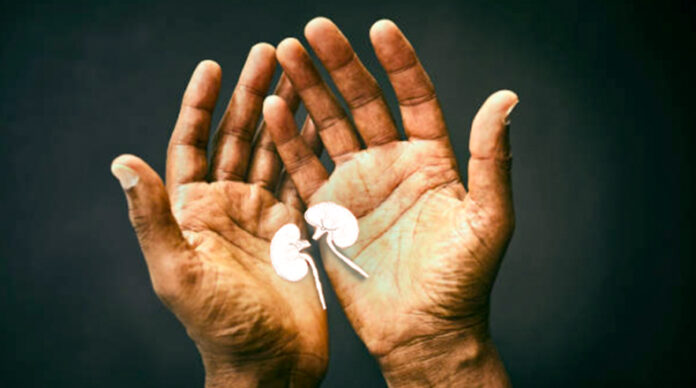While there is no cure for chronic kidney disease (CKD), those living with the condition can improve their outcome through close monitoring alongside their doctor and lifestyle changes.
CKD is a condition in which the kidneys are damaged and cannot filter blood as well as they should. In the early stages of the disease, most people do not have symptoms. But as kidney disease gets worse—which is why it’s called “chronic”—wastes can build up in your blood and make you feel sick.
Those with CKD may develop other problems, like high blood pressure, anemia, weak bones, poor nutritional health, and nerve damage. Because kidneys are vital to so many of the body’s functions, kidney disease also increases your risk of having heart and blood vessel disease.
While these problems may happen slowly and without symptoms, they can lead to kidney failure, which can appear without warning. Once kidneys fail, dialysis or a kidney transplant is needed to stay alive.
About one in seven adults have CKD—and the risk increases for people older than 65 years. The condition also runs in families. It’s more likely to occur in African Americans, Native Americans, and Asian Americans. Other risk factors for CKD include cigarette smoking, obesity, diabetes, high cholesterol, autoimmune disease, and other factors.
The only way to find out for sure if you have CKD is through specific blood and urine tests. These tests include measurement of both the creatinine level in the blood and protein in the urine.
It’s critical for patients living with CKD to be proactive about their health and well-being. This includes being aware of things that they can do to improve the function of their kidneys and prevent disease progression and putting them into practice. Additionally, staying in tune with their body and monitoring for early signs of change is also important.
There are several medications that may be prescribed in the management of CKD. Many patients take regular medication to control blood pressure, blood glucose, and cholesterol to reduce the risk of disease progression. It is important that patients take the medications as prescribed on a regular basis in order to get the most benefit.
Patients with CKD should also inform all health professionals involved in their healthcare that they are affected by CKD. This is because it can affect treatment decisions for other conditions and could have adverse effects if they are not aware of the specific circumstances.
There are several lifestyle factors that are linked to poorer outcomes for patients with chronic kidney disease. For example, smoking is linked to an increased risk of complications and, therefore, it is recommended to quit smoking if you currently smoke.
Likewise, being overweight or obese is also a risk factor for complications. Based on this knowledge, it is important to maintain a healthy weight by eating a nutritious diet and making sure to get enough exercise.
As a general rule, at least 30 minutes of low- to moderate-intensity activity, such as walking or cycling, is recommended each day.
Clinical trials can also be considered. There are fewer clinical trials conducted in nephrology, which focuses on the diagnosis and treatment of diseases of the kidney, than in any other specialty, experts say.
CKD trials like this one from AstraZeneca will build the evidence base to improve outcomes for people with the disease
A Few Kidney-Friendly Tips:
- Keep your blood pressure below 140/90 mm Hg (or the target your doctor establishes for you).
- If you have diabetes, stay in your target blood sugar range as much as possible.
- Get active—physical activity helps control blood pressure and blood sugar levels.
- Lose weight if you’re overweight.
- Get tested for CKD regularly if you’re at risk.
- If you have CKD, meet with a dietician to create a kidney-healthy eating plan. The plan may need to change as you get older or if your health status changes.
- Take medications as instructed, and ask your doctor about blood pressure medicines that may protect your kidneys in addition to lowering blood pressure.
- If you smoke, quit. Smoking can worsen kidney disease and interfere with medication that lowers blood pressure.
- Include a kidney doctor (nephrologist) on your health care team.
*Centers for Disease Control and Prevention





